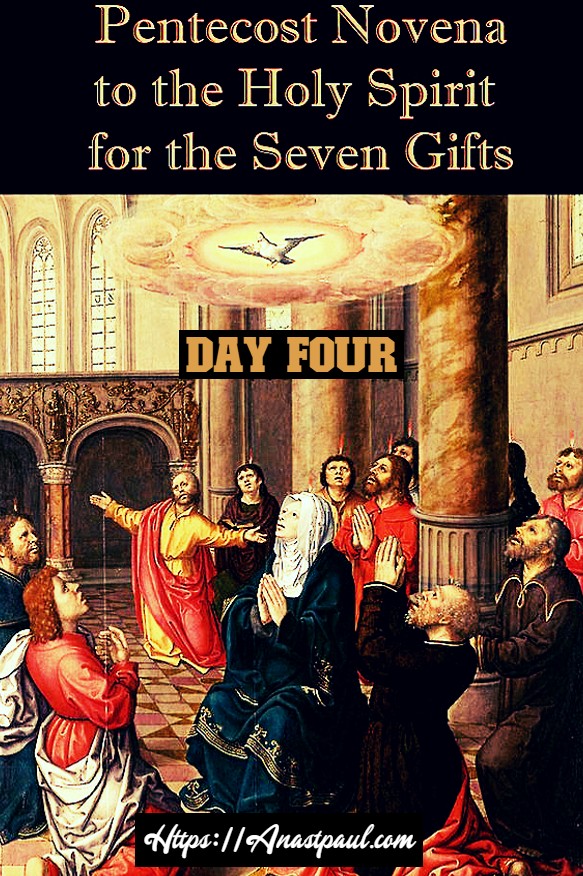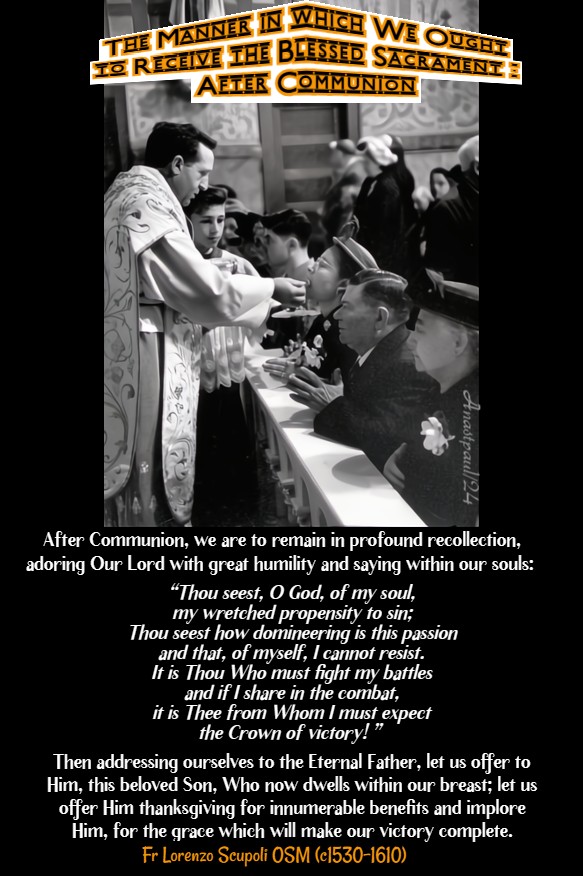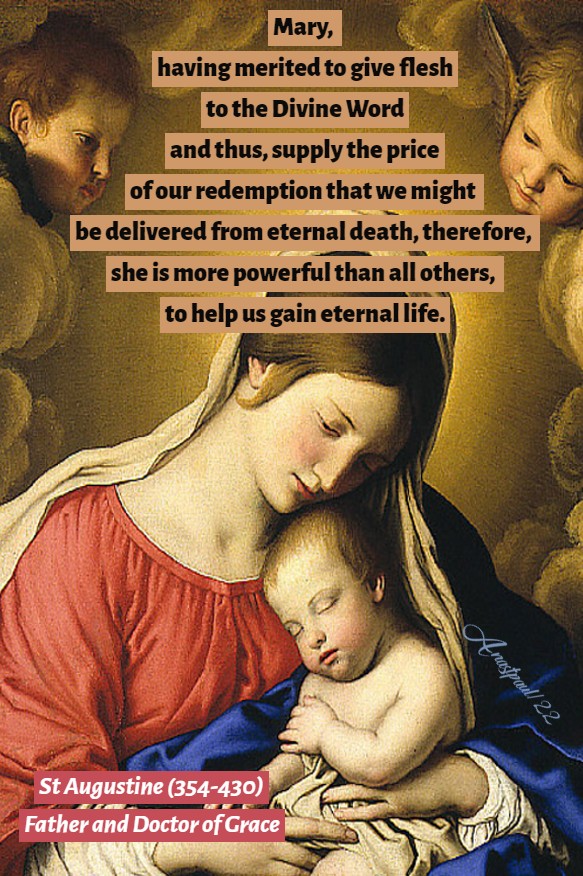Indulgenced Pentecost Novena to the Holy Ghost for the Seven Gifts – 13 May
FOURTH DAY
Foreword and Indulgences CLICK HERE : Foreword
Thou in toil art comfort sweet,
Pleasant coolness in the heat,
Solace in the midst of woe.
The Gift of Fortitude
By the Gift of Fortitude, the soul is strengthened against natural fear
and supported to the end, in the performance of duty.
Fortitude imparts to the will, an impulse and energy
which move it to undertake, without hesitancy, the most arduous tasks, to face dangers, to trample underfoot, human respect
and, to endure, without complaint, the slow martyrdom of even lifelong tribulation.
“He who shall persevere unto the end,
he shall be saved.”
Prayer
Come, O Blessed Spirit of Fortitude,
uphold my soul in time of trouble and adversity,
sustain my efforts, after holiness,
strengthen my weakness,
give me courage against all the assaults
of my enemies
that I may never be overcome
and separated from Thee, my God
and greatest Good.
Amen.
Our Father and Hail Mary – ONCE.
Glory be to the Father – SEVEN TIMES.
ACT OF CONSECRATION TO THE HOLY SPIRIT
To be recited daily during the Novena
On my knees,
I, before the great multitude of heavenly witnesses,
offer myself, soul and body to Thee, Eternal Spirit of God.
I adore the brightness of Thy Purity,
the unerring keenness of Thy Justice
and the might of Thy Love.
Thou art the Strength and Light of my soul.
In Thee, I live and move and am.
I desire never to grieve Thee
by unfaithfulness to grace
and I pray with all my heart to be kept
from the smallest sin against Thee.
Mercifully guard my every thought
and grant that I may always watch for Thy Light,
listen to Thine Voice
and follow Thy gracious inspirations.
I cling to Thee and give myself to Thee and ask Thee,
by Thy compassion, to watch over me in my weakness.
Holding the pierced Feet of Jesus,
looking at His Five Wounds
and trusting in His Precious Blood
and adoring His opened Side and stricken Heart,
I implore Thee, Adorable Spirit,
Helper of my infirmity,
to keep me in Thy grace
that I may never sin against Thee.
Give me grace O Holy Spirit,
Spirit of the Father and of the Son,
to say to Thee, always and everywhere,
“Speak Lord for Thine servant hears.”
Amen.

























































You must be logged in to post a comment.